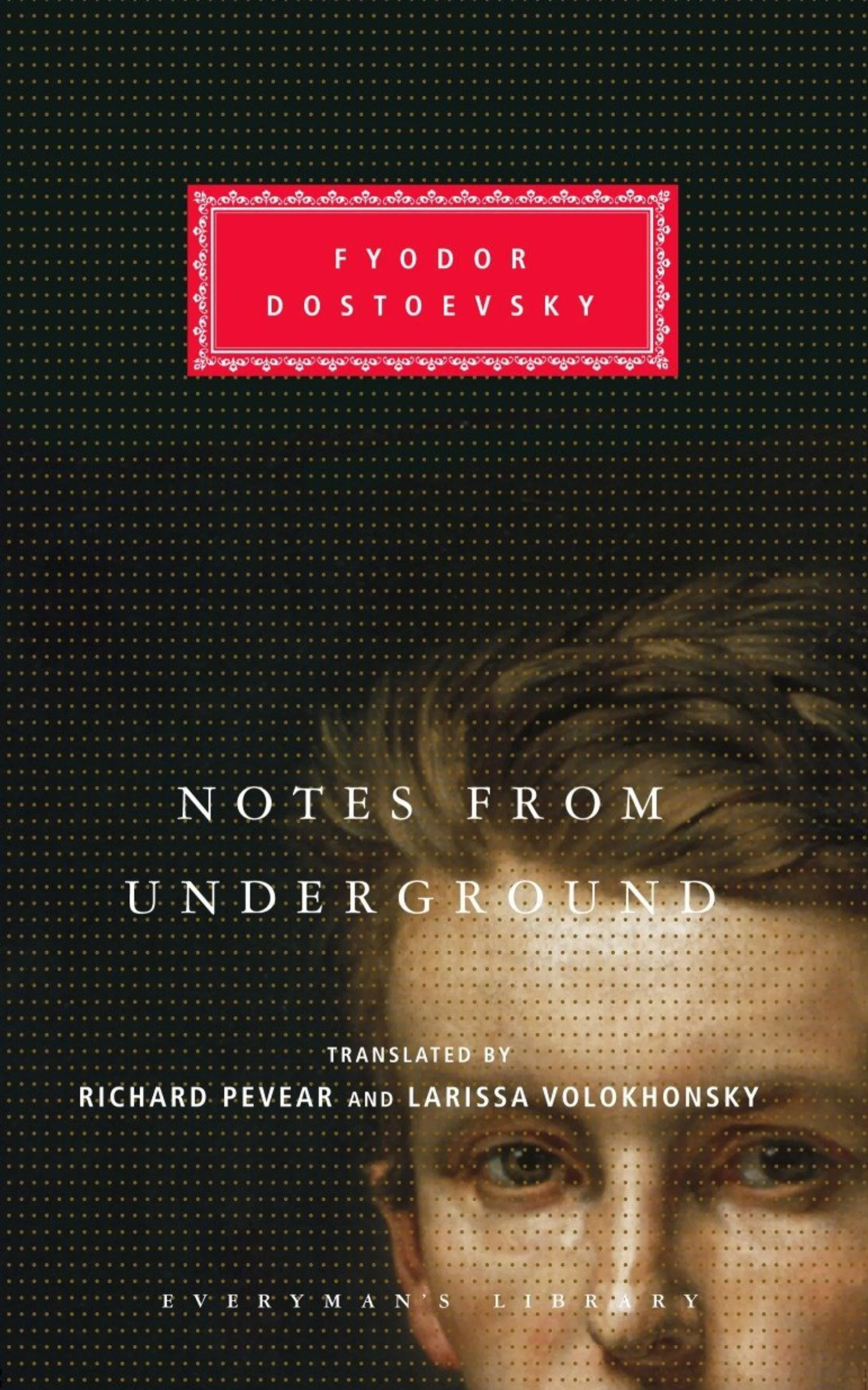
Notes from Underground
by Dostoyevski
🏆 Rated: 5/10
Summary
Notes from Underground by Fyodor Dostoevsky is an exploration of existentialism, free will, and the human condition. It is about chosing to withdraw from daily life, to not do anything because the world is fundamentally flawed.
The novel is narrated by an unnamed, bitter and isolated individual living in St. Petersburg often referred to as "the Underground Man". Through the monologues of the Underground Man, Dostoevsky critiques rationalism, utopianism, and the contradictions of human nature.
The Underground Man is highly self-aware but also deeply conflicted and cynical. He scorns rationalism and the idea that human behavior can be guided purely by logic or reason, a popular notion at the time. He argues that humans are irrational and often act against their own best interests, driven by emotions, desires, and a need for independence—even to their own detriment.
It is best to do nothing! The best thing is conscious inertia! So long live the underground!
The Underground Man believes that true freedom comes from rejecting societal norms and rational theories, even if it means embracing self-destruction. He ridicules the idea of a "perfect society" based on logic, claiming that humans will always rebel against such constructs, choosing chaos and suffering over comfortable conformity.
We learn about the stories of the Underground Man in the second part of the book:
One key episode involves the Underground Man's obsession with a military officer who once brushed past him in the street. The Underground Man is humiliated by this encounter and spends years fantasizing about revenge. Eventually, he deliberately bumps into the officer to prove his own existence and agency, but this act brings him no satisfaction.
Another major episode involves a dinner party with former schoolmates, including Zverkov, whom the Underground Man despises. The Underground Man attends the party, seeking validation and to assert his superiority, but instead finds himself alienated and humiliated. His awkward and spiteful behavior only further isolates him from his former friends.
The most important episode in this part of the novel is the encounter with Liza, a young prostitute. After the disastrous dinner party, the narrator invites Liza to his apartment, where he lectures her on the misery and degradation of her life. In a moment of vulnerability, Liza responds with compassion and hope, seeing something redeemable in the Underground Man. However, when Liza shows up at his apartment, he reacts with cruelty, rejecting her attempt to connect emotionally. Ashamed of his own pettiness and weakness, the Underground Man drives Liza away, realizing that his bitterness and self-loathing prevent him from forming meaningful relationships.
Key Ideas:
Humans can actively and freely chose actions, even if they know that those actions are bad for them. We have an inherent tendency for self-destruction. The book is also about how people can think of themselves as superior to others, based on their rationality, even if their life quite literally sucks.
An inability to connect with others, coupled with self-awareness, can create vicious cycles of resentment, bitterness, and despair.
People can revel in their own misery because it allows them to assert their independence, even though this freedom leaves them alone and unfulfilled.
In the end, the book struggles with the existential question of meaning in life. Somebody who can't find meaning in societal norms, rationalism, or utopian ideals, people, is lost. People like this become miserable, like the Underground Man. Their life becomes characterized by despair and a lack of purpose, which they often attribute to their acute awareness of their own contradictions and the futility of trying to impose order on a chaotic, irrational world. Bending the perception of their own demise as greatness in their minds.